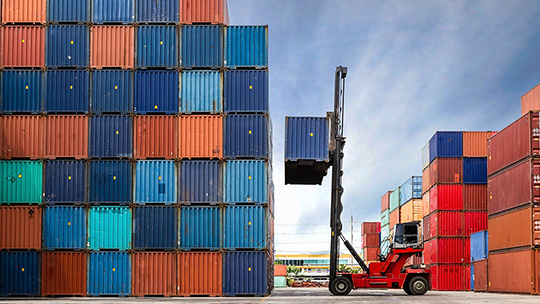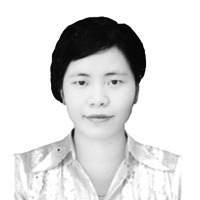Intellectual Property framework
As per the World Intellectual Property Organization (WIPO), Intellectual Property is defined as “creations of the mind, such as inventions; literary and artistic works; designs; and symbols, names and images used in commerce”.
There are seven types of Intellectual Property in accordance with Vietnam Law on Intellectual Property:
Copyright
Copyright is a legal term used to describe the rights that creators have over their literary and artistic works. Works covered by copyright range from books, music, paintings, sculpture, performance, phonograms, video recordings, broadcasts and films, to computer programs, databases, advertisements, maps, encrypted program-carrying satellite signals and technical drawings.
Patent
A patent is an exclusive right granted for an invention, which is a product or a process that provides, in general, a new way of doing something, or offers a new technical solution to a problem. To get a patent, technical information about the invention must be disclosed to the public in a patent application.
Trademark
A trademark is a sign capable of distinguishing the goods or services of one enterprise from those of other enterprises.
Industrial designs
An industrial design constitutes the ornamental or aesthetic aspect of a product or a component for assembly of a complex product. A design may consist of three-dimensional features, such as the shape or surface of an article, or of two-dimensional features, such as patterns, lines or colour.
Layout designs
Layout designs mean a three-dimensional disposition of circuit elements and their interconnections in a semi-conducting closed circuit.
Geographical indications
Geographical indications and appellations of origin are signs used on goods / products that have a specific geographical origin and possess qualities, a reputation or characteristics that are essentially attributable to that place of origin. Most commonly, a geographical indication includes the name of the place of origin of the goods.
Trade secrets
Trade secrets are Intellectual Property rights on confidential information obtained from activities of financial or intellectual investment, which has not yet been disclosed and which is able to be used in business.
Law on Intellectual Property
In 2005, Vietnam’s National Assembly passed the Law on Intellectual Property (IPLs); this law was later amended and supplemented in 2009. In September 2010, in an effort to strengthen the protection of Intellectual Property Rights after entering into the Bilateral Trade Agreement (BTA) with the United States and participation in the World Trade Organization (WTO), Vietnam’s government issued stricter administrative sanctions for violations of industrial property rights, along with some important changes to IP regulations in Vietnam.
Notably, in 2022, Vietnam’s National Assembly issued the Law on Amendments to some Articles of the Law on Intellectual Property, updating the regulations to be suitable with the practice.
Vietnam’s participation in international Intellectual Property Rights conventions
Vietnam participates in international IP conventions, notably:
- The Paris Convention for the Protection of Industrial Property;
- The Berne Convention for the Protection of Literary and Artistic Works;
- The Rome Convention;
- The Trade-Related Aspects of Intellectual Property Rights (TRIPS) Agreement;
- The World Intellectual Property Organization;
- The Patent Cooperation Treaty;
- The Madrid Protocol/Madrid Agreement; and,
- The Hague Agreement.
How to protect your IP in Vietnam
Vietnam’s Intellectual Property Rights offices
Vietnam’s IP system is divided into three areas as shown in the below table, together with the respective administration organizations.
|
Vietnam’s 3 Main Intellectual Property Protection Offices |
|
|
IP area |
Administered by |
|
Copyright and related rights |
|
|
Industrial property rights |
|
|
Rights to plant varieties |
|
The role of the National Office of Intellectual Property (NOIP): The NOIP holds the role of chief coordinator and is the agency which, under the aegis of the Ministry of Science and Technology, assumes the functions of exercising state management and providing services in the field of IP. This includes administrating the registration of industrial designs, trademarks, brand names, and other industrial property rights, and conducting basic legal appraisals to settle intellectual property disputes.
How to register copyrights, patents and trademarks
The Paris Convention’s “priority rights” can aid in the local registration of patents, designs, and trademarks by allowing rights that have been previously registered elsewhere to become effective in Vietnam. However, this must be completed within a specific time limits.
The following mechanisms are in place for registering copyrights, patents and trademarks:
Copyrights
Vietnam copyright IP is governed by the Berne Convention and relevant regulations on copyright which states that the minimum protection from publication will be:
- 75 years for cinematographic works, photographic works, dramatic works, works of applied art and anonymous works; and,
- 50 years after the death of the author for other works.
While no copyright registration is required in Vietnam, most patent experts suggest registering copyrights with the country’s copyright authorities.
Further registrations of copyright are conducted at the National Copyright Office of Vietnam which headquarters is in Hanoi city. Besides that, businesses can go to the Representative Office of the Copyright Office of Vietnam in Ho Chi Minh City or Da Nang city for administrative procedure. Note: Copyrights also apply to computer programs, which cannot be patented.
Patents
Individual patent registrations, such as industrial designs and inventions, must take place in Vietnam at the National Office of Intellectual Property or its representative offices. Vietnam’s patent law operates under the “first to file” principle. For patent rights for things other than industrial designs, applications can also be handled by the Patent Cooperation Treaty. In this way, the country makes a distinction between patents and utility solution patents as follows:
- Invention patents have a maximum protection of 20 years;
- Utility patents have a maximum protection of 10 years; and,
- Industrial designs have a maximum protection of five years (however, this is renewable for two consecutive periods of five years).
Trademarks
The trademark system in Vietnam protects symbols under the forms of letters, words, drawings, images, holograms, or a combination thereof, represented in one or more colours or sound trademarks that can be graphically presented, which are used to identify a business’s products or services. Trade name rights are established through lawful use rather than being formally registered. With respect to online domains, these are handled on a first-come, first-served basis.
- Trademarks last for 10 years and can be renewed indefinitely for further ten-year periods; and,
- Registration can take up to 15 months to complete.
Trademarks can be registered in Vietnam or by using the Madrid Protocol / Madrid Agreement.
Intellectual Property Right enforcement in Vietnam
Companies seeking to enforce their IP rights in Vietnam have three options:
- Administrative action;
- Civil court action or Arbitration; and,
- Criminal prosecution.
Most IP disputes are handled through administrative action. Possible actions that can be taken by the relevant government authorities include the issuance of warnings, fines, and some additional penalties, including but not limited to the seizure or destruction of the counterfeit goods, suspension of business activities for a fixed period.
However, Vietnam’s government agencies have struggled to keep pace with the changes taking place within the laws. Therefore, a favorable strategy in Vietnam is for your IP to be well defended, to minimize the need for offensive actions to handle IP disputes.
Defensive actions can include:
- employment contracts with clear IP-related clauses,
- being on the lookout for production overruns (which could be a sign that your products are being sold elsewhere),
- speaking with other foreign businesses in the same operating field to learn best practices, and
- registering your IP.
Recent developments and outlook
Indicating that Vietnam is taking IP issues seriously, it issued Decree No 22/2018/ND-CP in April 2018, updating guidelines and numerous articles focusing on copyright under the Civil Code and the Law on Intellectual Property. In April 2020, the IP office issued Official Letter No 5360/SHTT-NDHT on assistance to individuals filing international patent applications. More recently, in August 2023, The Government of Vietnam promulgated Decree No 65/2023/ND-CP, elaborating on several articles and implementation measures of the Law on Intellectual Property regarding industrial property rights, protection of industrial property rights, rights to plant varieties, and state management of intellectual property.
In August 2019, the Vietnamese government also issued Decision No. 1068/QD-TTg or National IP Strategy on Intellectual Property Strategy with a Vision to 2030. The document will serve as a guideline for ministries, sectors, and state agencies to adopt IP rights – the first time Vietnam has done this as a national strategy.
As part of the European Union-Vietnam Free Trade Agreement (EVFTA), which has officially come into effect since 2020, Vietnam has been tightening up its IP protection laws. Additionally, the Comprehensive and Progressive Agreement for Trans-Pacific Partnership (CPTPP) is pushing Vietnam to meet high standards of IP rights.
As Vietnam, becomes more integrated globally, in part through its free trade agreements, IP rights will become an even more important factor in how organizations view the business climate in Vietnam, particularly as the country’s economy and technology continue to develop. Fortunately, Vietnam is keen to develop and work on its IP laws to help push it further in the global economy.





















